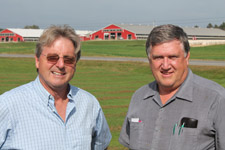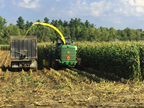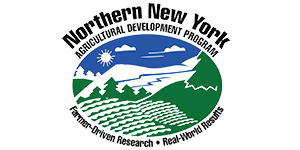
Northern New York Agricultural Development Program (NNYADP) Co-Chair Jon Greenwood and St. Lawrence County farmer Kevin Acres comment on the revival of corn silage testing in New York State in an article posted by American Agriculturist magazine in the fall of 2017.
The hybrid evaluation trials were restored with a 2016-2017 funding from the New York Farm Viability Institute with additional funding from the NNYADP for regional testing. The silage testing project leaders with Cornell University are PRO-Dairy Director Tom Overton, Dairy Forage Systems Specialist Joe Lawrence, Dairy Research Specialist Allison Lawton, and Plant Breeding and Genetics Professor and corn researcher Margaret Smith; assisted in Northern NY by CCE Crops Specialists Kitty O’Neil and Mike Hunter.



 The farmer-driven Northern New York Agricultural Development Program has posted its 2018 grant announcement and application at
The farmer-driven Northern New York Agricultural Development Program has posted its 2018 grant announcement and application at